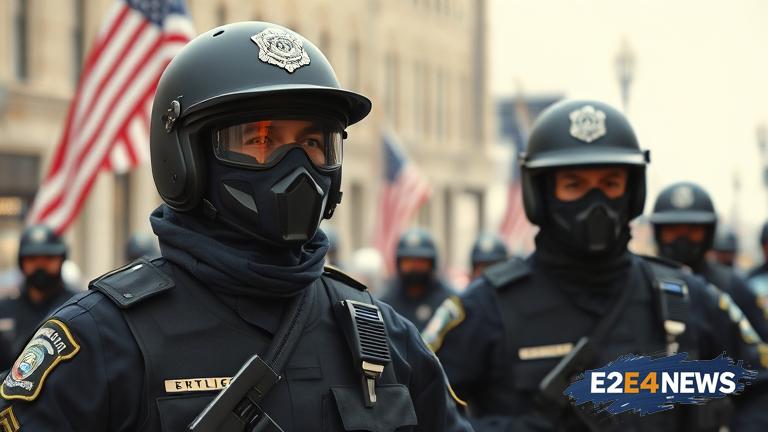The rise of masked officers in American law enforcement has become a highly controversial topic, with many questioning the motivations behind this trend. In recent years, there has been a noticeable increase in the number of police officers wearing masks, particularly during protests and demonstrations. This phenomenon has sparked heated debates about the role of law enforcement in society and the balance between public safety and individual rights. Proponents of masked officers argue that it helps to protect their identities and prevent retaliation from violent individuals or groups. However, critics argue that masking officers undermines accountability and transparency, making it difficult to identify and investigate instances of police misconduct. The use of masks by police officers has also been linked to a broader trend of militarization in law enforcement, with many departments adopting tactics and equipment reminiscent of military operations. This has raised concerns about the erosion of civil liberties and the potential for abuse of power. Furthermore, the masking of officers has been criticized for creating an atmosphere of fear and intimidation, rather than fostering trust and cooperation between law enforcement and the communities they serve. The controversy surrounding masked officers has also highlighted the need for greater oversight and regulation of law enforcement practices. Many have called for the implementation of policies that require officers to wear identifiable badges or markings, in order to ensure accountability and transparency. Despite these concerns, some law enforcement agencies have defended the use of masks, citing the need to protect officers from harm. However, others have argued that this approach is misguided and ultimately counterproductive, as it can exacerbate tensions and create a sense of mistrust between law enforcement and the public. The debate over masked officers has also sparked a wider conversation about the role of law enforcement in American society, with many questioning the balance between public safety and individual rights. As the controversy continues to unfold, it remains to be seen how law enforcement agencies will respond to these concerns and whether the use of masks will become a permanent feature of American policing. The issue has also raised questions about the impact of masked officers on community relationships and the potential for long-term damage to trust and cooperation between law enforcement and the public. Ultimately, the rise of masked officers in American law enforcement has highlighted the need for a nuanced and informed discussion about the complex issues surrounding policing and public safety. By examining the motivations behind this trend and the potential consequences for accountability and transparency, it is possible to work towards a more equitable and just system of law enforcement. The controversy surrounding masked officers has also underscored the importance of ongoing dialogue and collaboration between law enforcement agencies, community leaders, and civil rights organizations. Through this process, it may be possible to develop more effective and sustainable solutions to the challenges facing American law enforcement, while also upholding the principles of accountability, transparency, and public trust.




